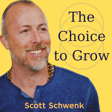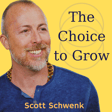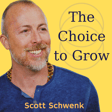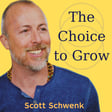
Integrating the Infinite with Layman Pascal
What happens when you stop trying to outsmart life and start letting it teach you? In this wide-ranging and mind-expanding conversation, Scott Schwenk sits down with philosopher and spiritual provocateur Layman Pascal. Together, they explore how to navigate complexity without losing clarity, the difference between real growth and spiritual bypass, and why paradox may be the ultimate teacher. Expect to challenge your assumptions—and laugh a little along the way.
Layman Pascal - Metamodernist, Author, Alchemist
Layman Pascal used to be a Canadian meditation teacher, yoga instructor & philosopher of Integral Metatheory -- but he’s feeling much better now. In his rapidly dwindling spare time, he leads the Metamodern Spirituality Labs, hosts The Integral Stage and Soulmakers+ podcasts, and provides unique online courses for the Parallax Academy. He is a founding member of the Archdisciplinary Research Center, the Endemic Wisdom Council, the SPECTRA think tank for Metashamanics, Sky Meadow Institute, and the RSPND network. He is senior editor of Emerge online and he operates as co-chair of the Foundation for Integral Spirituality and Religion. His written articles can be found in various obscure journals and certain esoteric anthologies including Perspectiva’s Dispatches from a Time Between Worlds and Cadell Last’s Abyssal Arrows: Spiritual Leadership Inspired by Thus Spoke Zarathustra, and Logic for the Global Brain. He is the sole author of Gurdjieff for a Time Between Worlds, Sex, Death & the Occult, as well as an upcoming book about Nietzsche. Layman is known for his philosophical work on the metaphysics of adjacency, analytic nonduality, coaxial developmental stage theories, neurological correlates of meditation, sacred naturalism, archaic futurism, many-one theology, embodied spirituality & emerging formulations of the human religious instinct suited to a post-postmodern civilization facing numerous accelerating and converging crises. And he has started referring to all his work as the Serious Playground.
Scott Schwenk - Master Coach, Spiritual Teacher, Culture Architect
Host and creator of the podcast The Choice To Grow, Scott is known for his hugely popular courses and workshops with OneCommune.com, Younity.com, Wanderlust Festivals, and Unplug Meditation, Scott has been catalyzing the inner evolution of others for decades: helping them to grow, transform obstacles into opportunities, and find Love within.
Scott spent several years living and studying in a meditation monastery which introduced him to the core body of Tantric meditation traditions which continue to flow through each of his teachings. Scott continues to study and teach from two key Tantric lineage streams.
Apprenticeships in leadership development, meditation and philosophy training, shadow work/shadow resolution and spiritual awakening are all part of Scott’s development into the thought-leader that he is today. He continues to refine his offerings studying and practicing with key innovators at the leading edges of human development.
Scott’s teachings support the entire person to not only progressively recognize, stabilize and embody our inextricable oneness with the source of creation (Waking Up), but also to resolve the wounds of the past (Cleaning Up), continually expand our capacities for wider and more inclusive perspectives on any moment (Growing Up) and creatively and joyfully participate and collaborate with all of life as a loving thriving human being (Showing Up).
You can receive a free guided meditation and explore Scott’s courses, workshops, retreats, training and master coaching at https://scottschwenk.com and can find him on Instagram @thescottschwenk.



